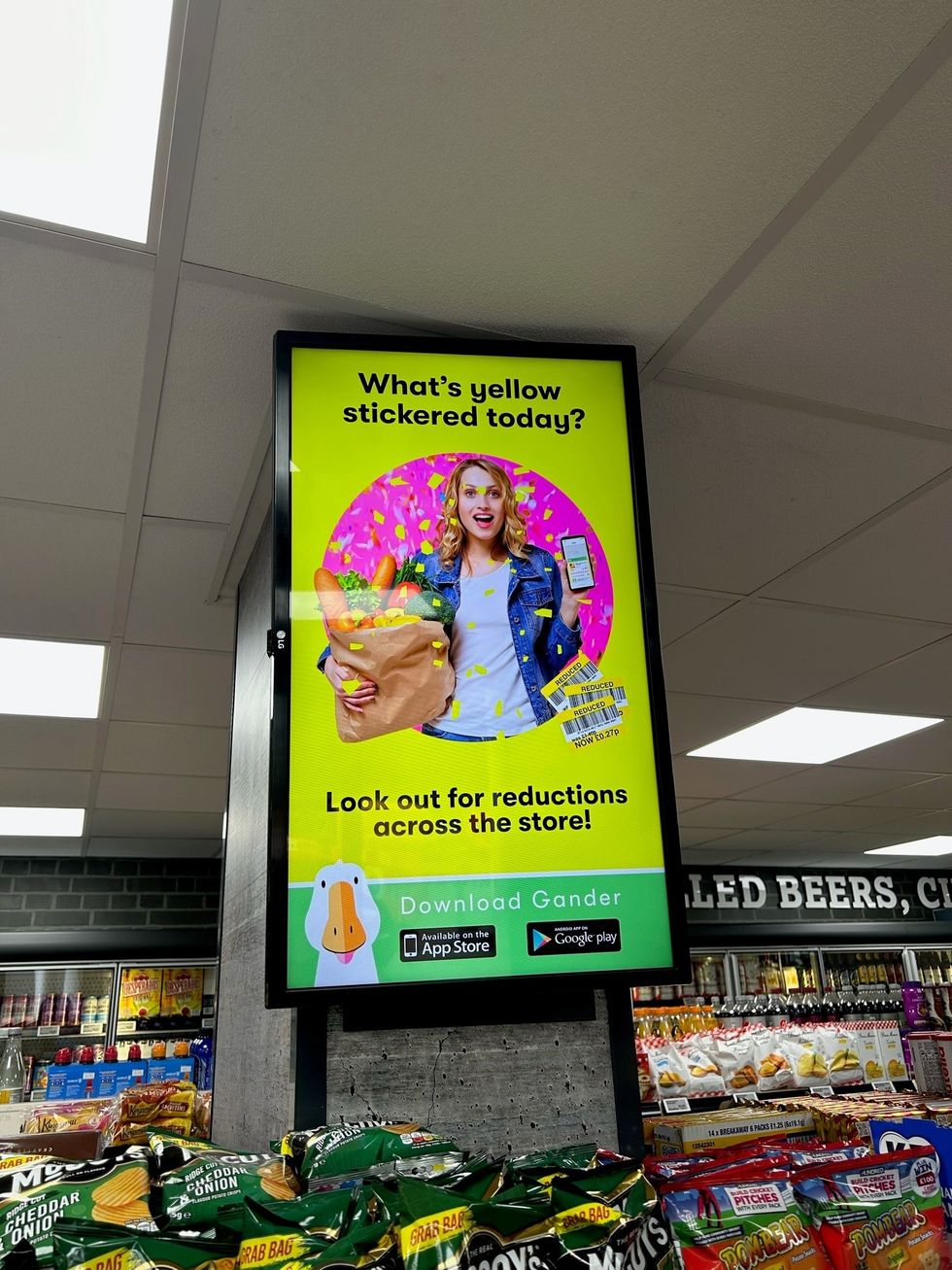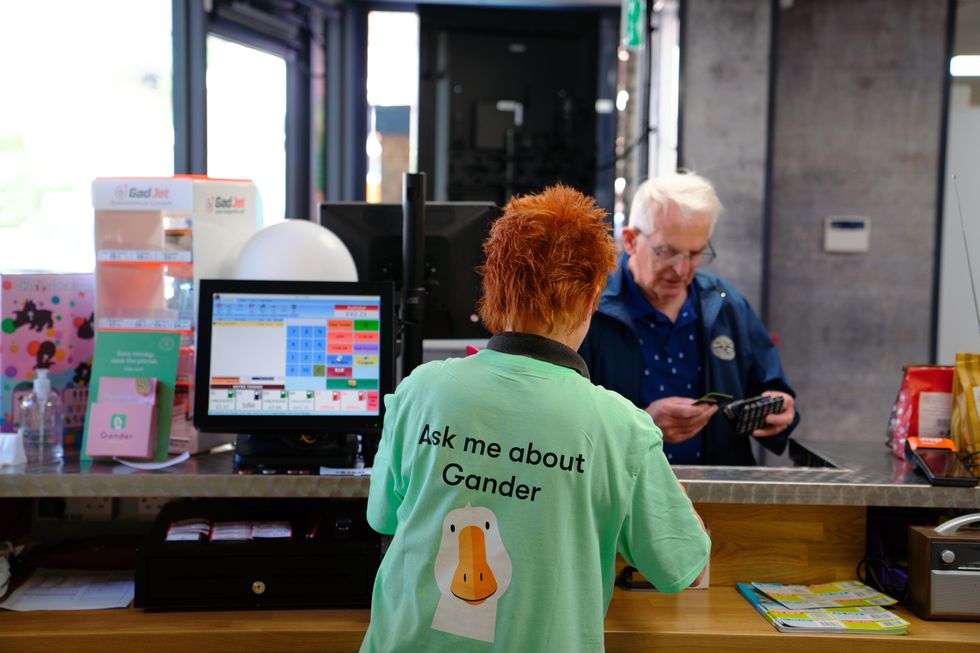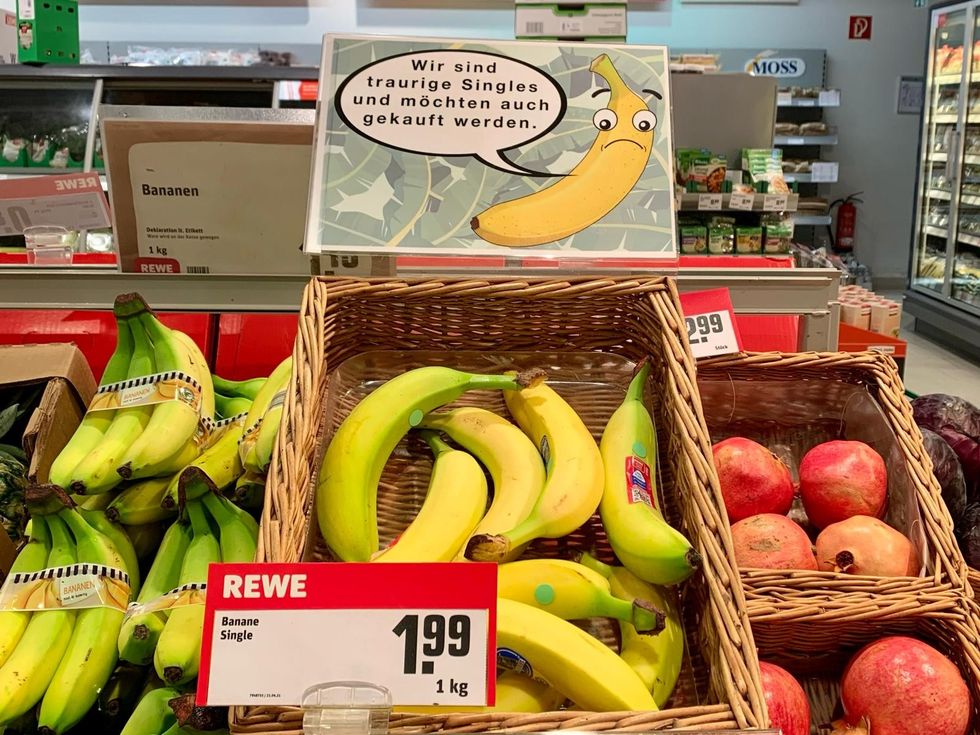Convenience stores have always been more than just a place to pick up groceries – they are vital community hubs. This role was highlighted during the pandemic, as they became lifelines for essential supplies and services. Then, amidst the cost-of-living crisis and soaring inflation, convenience retailers have once again stepped up, helping shoppers stay closer to home and navigate financial pressures by catering to the growing demand for smaller, more frequent shops.
This increased reliance, however, comes with a heightened sense of responsibility. Retailers are not only tasked with meeting the immediate needs of their customers but also supporting the broader community in meaningful ways. Whether through charity initiatives, health education, or sustainability efforts, convenience stores are redefining what it means to be responsible business owners.
At the same time, the industry faces significant challenges. Youth access to vapes, the sale of illegal tobacco, and underage alcohol purchasing are under intense scrutiny. Meanwhile, retail crime and abuse of staff have reached crisis levels – raising questions of responsibility of retailers not only towards shoppers but to colleagues as well.
Dynamic Risk Assessment
Priyesh Vekaria, the winner in the Responsible Retailer Award category at the Asian Trader Awards 2024, brings a unique perspective to retail, informed by his decade-long career in the police force and a degree in law. This background has enabled him to implement innovative measures at his One Stop Carlton Convenience store in Salford to ensure the safety and welfare of his staff, customers, and the broader community.
At the heart of Vekaria’s strategy is his Dynamic Risk Assessment, a bespoke approach to selling age-restricted products. “Whilst we have legislation set in stone, this is designed to consider a person on an individual basis,” he explained in his entry to the awards. This method goes beyond verifying age; it evaluates a customer’s behaviour and circumstances, such as whether they are under the influence of alcohol or drugs.
“We don’t claim to be social workers, but if we can find out what is bothering a customer and give them the opportunity to talk and see a different perspective, even just to be noticed can be enough to stop a person buying further alcohol and allow them to find an alternative way to help them through a challenging situation,” he noted.
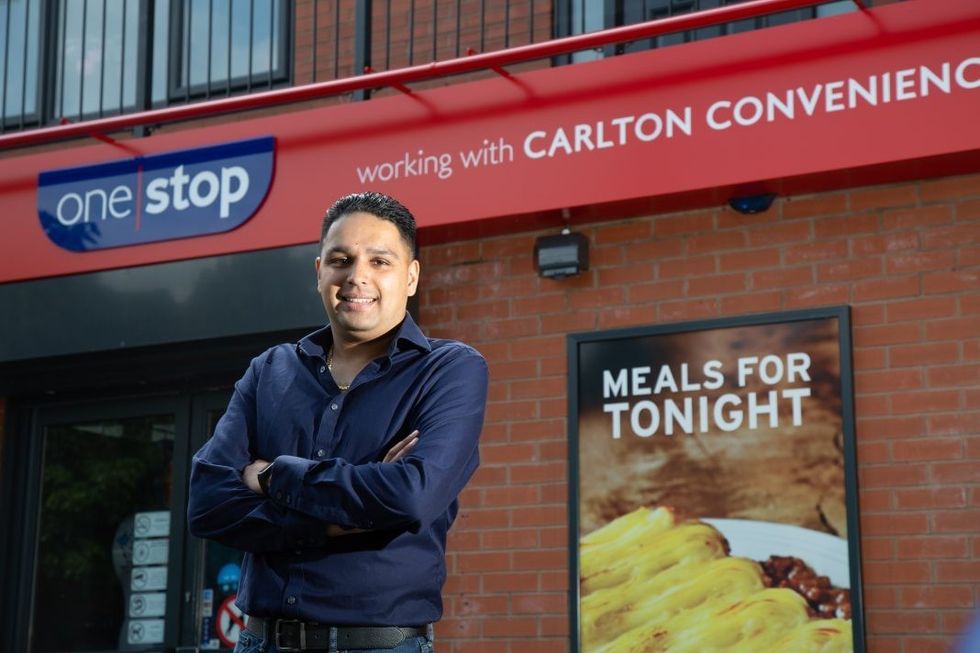
This customer-focused philosophy draws on the adaptive approach used in crime prevention, aiming to diffuse potential issues through communication and understanding.
With the store operating between 7am and 2am from Thursday to Sunday, Vekaria has invested in security technologies. These include facial recognition cameras and two-way talk systems that enhance communication and ensure safety without compromising the personal touch that defines their customer service.
Additionally, a night-service hatch, similar to those seen in petrol stations, allows him to maintain service continuity in a secure manner during late hours, safeguarding both the staff and customers. Other features in the store include panic alarms and a full smokescreen.
Vekaria’s approach to responsible retailing extends beyond policies and technology. His team is trained not just to enforce the law but to foster genuine connections with customers. By engaging customers with a “good morning” or taking a personal interest in their lives, his store creates a welcoming environment that encourages loyalty.
“Being a responsible retailer is more than just selling to customers over a certain age,” he says. “We want everyone who comes into the store to have an authentic and positive customer service experience.”
Leverage tech, combat crime
With shoplifting and related issues creating immense challenges for independent retailers and convenience colleagues, store owners are increasingly relying on technologies to tackle the issue.
This year, the Association of Convenience Stores (ACS) crime report found that there have been 5.6 million incidents of shop theft recorded, with 600 incidents of theft taking place every hour, smashing the previous record of 1.1 million incidents recorded in 2023.
The report, published in March, also highlighted a huge increase in violent incidents committed against retailers and their colleagues. Over the previous year, there have been around 76,000 incidents of violence in shops compared to 41,000 in the 2023 Crime Report.
For Glasgow retailer Girish Jeeva, who himself had some very ugly experiences with shoplifters, combating crime involves not only protecting the store’s assets but also ensuring the safety and morale of his team.
A finalist in the Responsible Retailer Award category at the Asian Trader Awards 2024, he has invested in cutting-edge technology, including dozens of CCTV cameras and innovative tools from RetailAI.
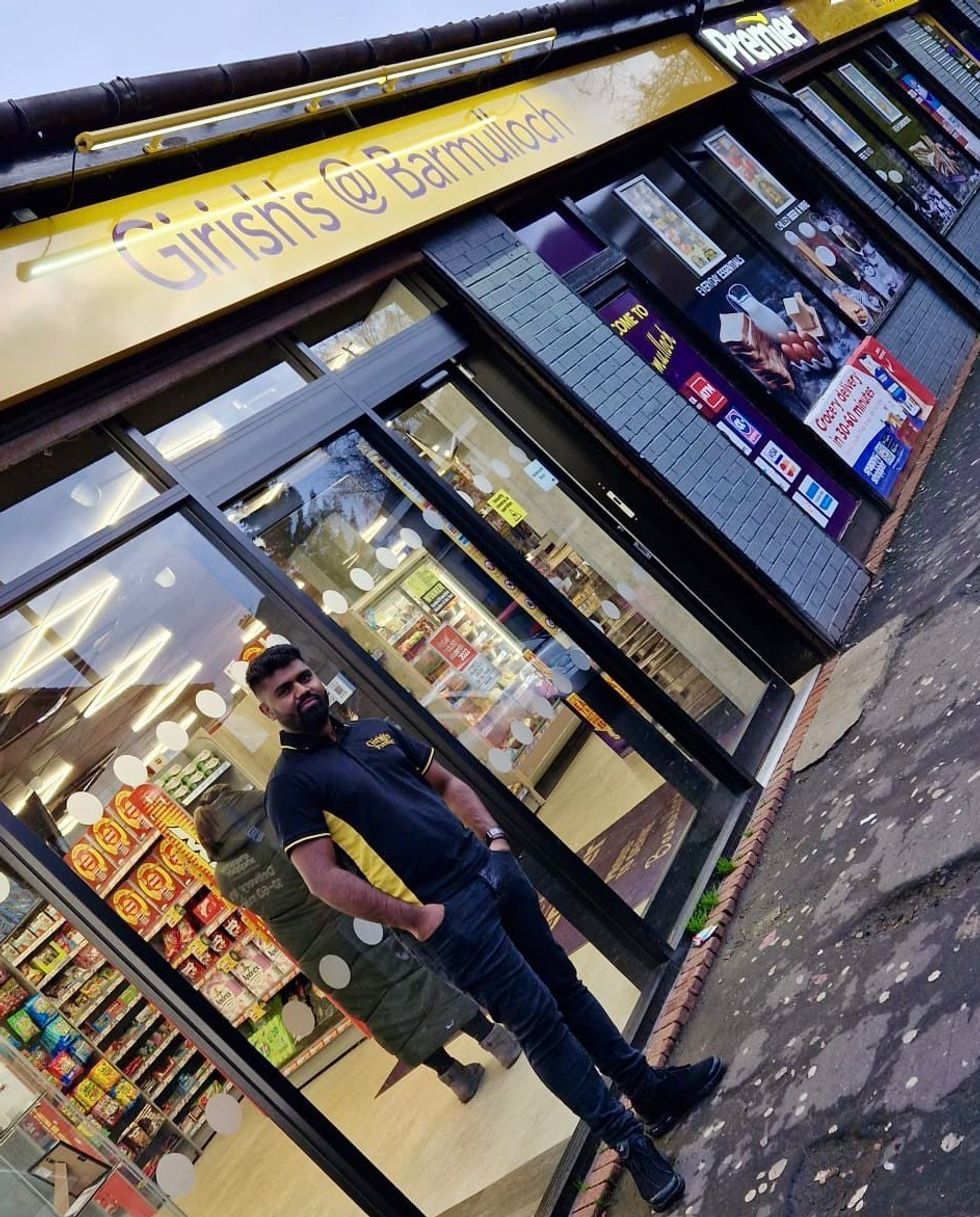
One standout solution is a trial module by RetailAI that detects suspicious movements via CCTV and alerts them with a police-siren like sound and anti-theft message.
“Its real-time alerts, ability to detect theft within 3-5 seconds, coupled with store announcements warning shoplifters to return products, are real game changers,” Jeeva explained in his entry to the awards. This system sends alerts to the till and staff phones, complete with images and a 20-second video, ensuring immediate action. Jeeva’s Barmulloch store is the first in Scotland to trial this pioneering technology.
Communication is another critical focus area. Jeeva has equipped his team with headsets, allowing discreet and effective communication during emergencies and day-to-day operations.
He also makes use of advanced tools in the sale of age-restricted goods, integrating age estimation solution MyCheckr to the till. This technology supports compliance with the Challenge 25 policy while also offering ID verification and media advertising capabilities.
Reducing food waste
Sustainability has become a cornerstone of responsible retailing, with forward-thinking convenience retailers embracing innovative practices and technology to drive growth while making a positive impact on society.
Stacey Williams, business development director at Gander, highlights the benefits of adopting sustainable strategies. “Sustainability as a key business driver leads to a better brand image and competitive advantage, reduced business costs, higher productivity than other waste prevention solutions, reduced waste whilst also meeting future compliance and regulations,” he says.
A prime example of sustainability in action is Gander’s platform, which connects consumers to reduced-to-clear food and drink items in real time, helping stores reduce food waste.
“We ensure our technology not only drives efficiency but enables more people to access perfectly good food, pay less for that food, and prevent it from going to waste,” explains Williams. “In doing so, businesses will minimise their losses and gain more customers, whilst doing their bit to save the planet.”
Ganderlytics, the platform’s analytics tool, demonstrates the tangible benefits of these efforts, with shoppers saving an average of 56 per cent on reduced items spotted on Gander.
The latest Food Waste Index Report (2024), compiled by the United Nations Environment Programme (UNEP), found that the world wastes over a billion tonnes of food – one fifth of all food available to consumers at the retail, food service and household level annually. This is in addition to 13 per cent lost in the supply chain, according to the FAO.
Williams stresses that reducing food wastage is a key sustainable practice that every retailer can implement in their store.
“We would recommend to retailers to consider their end-to-end operations in store and what changes can be made to reduce food waste through embracing new technology. Adopting the Gander platform, which uses real-time technology to highlight reduced to clear food items, enables retailers to reduce their food waste and it is proving to be a huge advantage,” he says.
Claire Goddard, marketing manager at Pricewatch Group, which operates independent forecourts and convenience stores across Sussex, attests to the transformative impact of Gander on their stores.

“As food prices have increased over the past few years, the Gander platform has really helped shoppers in our area manage their food bills,” she says. “We’ve seen how some have had to change the way they shop and now save money by spending it on reduced food. This has helped us promote ourselves as a value retailer amongst our customers.”
Gander’s real-time technology not only attracts customers by displaying available discounts but also ensures a seamless shopping experience by automatically removing sold items from the app.
“This is a huge benefit because it means our shoppers using the app are never disappointed when they reach our stores,” Goddard adds.
She reveals that their stores regularly sell over 86 per cent of the reduced food, helping improve their margins while also supporting the local community.
“Reducing food waste also has a huge impact on the environment and its positive effect cannot be ignored,” she says. “I would urge any retailer looking to change their shoppers buying patterns to look at Gander. It has really helped us reduce food waste and become a more sustainable business whilst allowing us to connect with our local customers from the comfort of their home.”
Partners amplify impact
Gander’s groundbreaking trial with Snappy Shopper further underscores its potential to revolutionise the convenience sector. By integrating Gander’s reduced-to-clear listings into the Snappy Shopper home delivery app, participating SPAR Scotland stores a 10 per cent rise in basket value when Gander items were added in the first quarter of this year.
Over one in ten orders (11 per cent) included a Gander product and item count with Gander was 21.3 vs 13.7 without Gander - an increase of 7.6 basket items, providing the stores with a new level of efficiency and effectiveness in their sustainability endeavours.
“The successful outcome of this trial highlights the potential for other retailers to drive innovation and deliver unparalleled value to convenience shoppers,” Williams says.
“By harnessing the strengths of Gander and Snappy Shopper, this integration sets a new standard for retailers looking to reduce wastage costs within their own stores, and for customers looking to find reduced to clear goods.”
Gander’s commitment to reducing food waste extends through partnerships such as its integration with local sharing app Olio. Olio’s new Deals section, powered by Gander, allows its four million UK users to find discounted groceries from participating stores like Morrisons Channel Islands, Filco Market, Pricewatch Group and Sewell on the Go, displaying branded products from Nisa, Morrisons Daily and Co-op.
Williams encourages retailers to embrace sustainable technology, noting that “by investing in retail technology, retailers can make a positive impact on their stores' sustainability.” He advises businesses to focus on practical, achievable changes that balance ambition with feasibility.
“In order to make a long term difference retailers need to identify what key areas they can make a difference – now and in the future. They need to balance ambition with do-ability,” he says.
‘Simpler Recycling’
The government in late November published a policy update on recycling, introducing significant changes for businesses to streamline recycling practices and improve sustainability. Effective by 31 March 2025, these reforms set new standards for waste collection across England, aiming to create a consistent system that benefits the environment and reduces confusion.
Businesses and non-domestic premises, including schools and hospitals, must arrange for the collection of the following recyclable waste streams:
- Glass such as drinks bottles and rinsed empty food jars
- Metal such as drinks cans and food tins, empty aerosols, aluminium foil, aluminium food trays and tubes
- Plastic such as rinsed empty food containers and bottles
- Paper such as old newspapers and envelopes
- Cardboard such as delivery boxes and packaging
- Food leftovers or waste generated by food preparation
Businesses with fewer than 10 full-time equivalent employees (micro-firms) are exempt from these requirements until 31 March 2027.
Environmental charity WRAP has published a guide for the retail and wholesale sector to help implement recycling in the workplace (https://tinyurl.com/wrapguide).
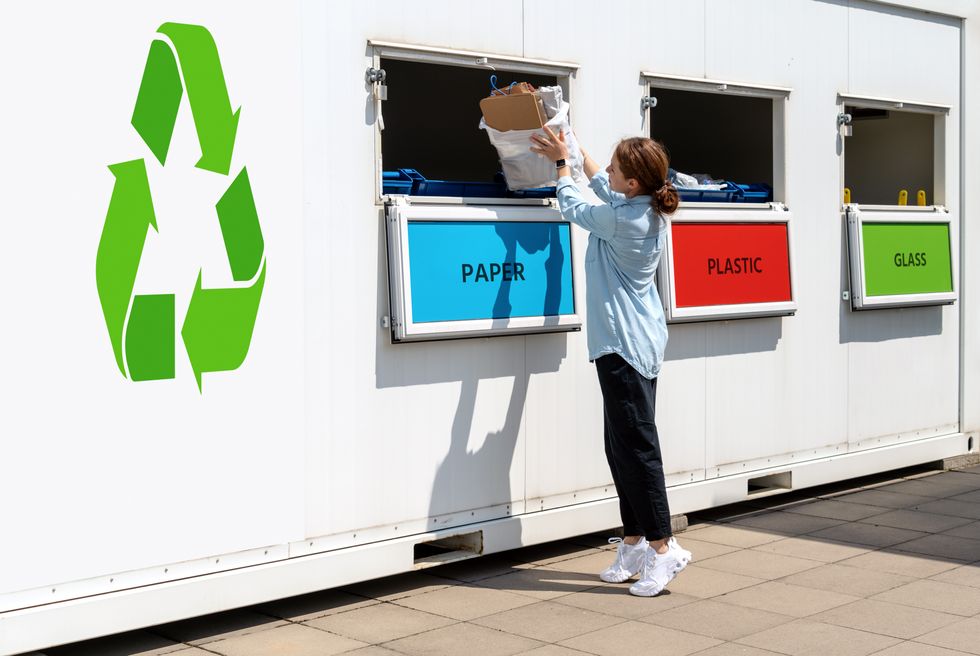
“There are enormous environmental and financial gains to be realised by encouraging the 2.2 million business in England to separate food and recyclables from refuse. The two-year delay for micro-sized businesses will give smaller businesses more time to implement recycling into smaller or shared premises,” Shrewsbury said.
“WRAP is working with Defra and industry to develop new support tools and guidance to help all businesses with the transition. We will continue to work with trade bodies and local authorities to make transition as seamless as possible through our tools, technical support, and resources,” she added.
Navigating DRS
Meanwhile, the development of Deposit Return Schemes (DRS) continues to spark significant debate, with distinct approaches emerging between Wales and the rest of the country.
The UK government’s DRS, now covering England, Scotland, and Northern Ireland, is scheduled to launch in October 2027. It excludes glass containers, focusing on plastic and metal drinks containers to minimise contamination and streamline operations.
Trade bodies have raised concerns about the complexity of operating under differing schemes.
“We are extremely concerned that the Welsh government is doubling down on insisting on a different approach to a DRS than the rest of the UK,” James Lowman, chief executive of the Association of Convenience Stores, said.
“A unified approach across the UK is best for consumers, retailers and producers, and has the best chance of achieving meaningful change in recycling rates. The Welsh government’s separate approach will be confusing for everyone involved and disruptive to the delivery of DRS across the rest of UK.”
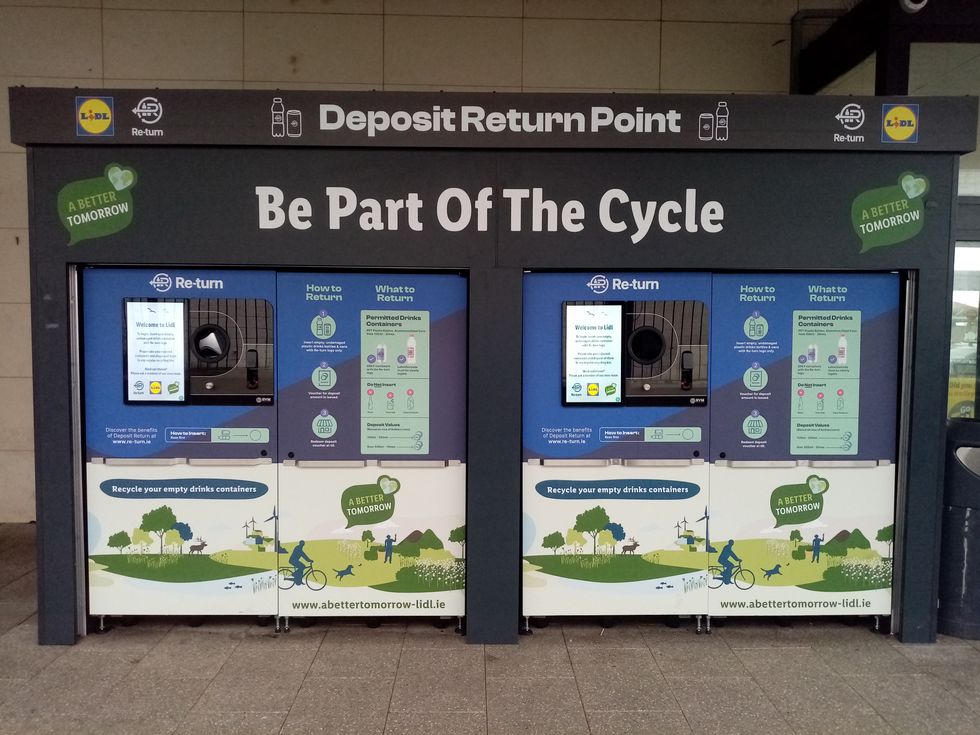
The Federation of Independent Retailers (The Fed) national president Mo Razzaq highlighted issues with interoperability, noting that consumers may struggle with cross-border returns under separate schemes.
“A single UK-wide scheme would be far more successful, efficient, and effective, enabling shoppers to understand and embrace DRS as quickly as possible.” he added.
Wales had always maintained that glass would be part of its deposit return scheme. But, earlier in November, the UK government confirmed that it would not include glass in the scheme.
“This is a concerning development, as Fed members believe a Welsh DRS scheme can only work effectively if it has a UK scale and is aligned with the rest of the country,” Welsh retailer Vince Malone, a member of the Fed, commented.
Adapting to new regulations
Retailers across the UK are facing a wave of new regulations aimed at promoting public health, sustainability, and ethical practices. From the upcoming disposable cup charge in Scotland and HFSS (high fat, salt, and sugar) restrictions in Wales to the nationwide ban on disposable vapes and a licensing scheme for tobacco and vape retailers, these measures are reshaping the retail landscape. For convenience retailers, adapting to these changes is not just a matter of compliance but an opportunity to lead in responsible retailing.
Scotland wants a charge of at least 25p to apply to all single-use disposable beverage cups when a person buys a drink of any kind.
The government launched a consultation in October, and in its response the Fed has called for an effective communication campaign and a robust enforcement process.
“It is vital for the Scottish government to communicate clear instructions to retailers on how the scheme is to be administered, to communicate the “how and why” to customers and to allow retailers enough time to prepare for the changes,” Razzaq, who owns a store in the Scottish town of Blantyre, said.
“Communication was one of the key weaknesses of the Deposit Return Scheme. as it seems to have been considered at a late stage – even though the ask to consumers and retailers involved a major behavioural change. We would hope lessons have been learned from this.”
He said it is of the utmost importance that there is at least a six-month notice period, highlighting the challenges to retailers such as recording the numbers of single-use disposable beverage cups charged for; the charge paid for them; the amount retailers are entitled to deduct to calculate the net proceeds – such as the costs to administer the system and VAT – and the net proceeds raised by the charge.
“We would anticipate that 25p is a sufficient incentive for many customers to remember to bring their own cup. A higher price might encourage customers to go without a drink if they haven’t brought their own cup,” he added.
The Fed also believes the funds generated from the charge should be retained by businesses and redirected to local worthy causes, like the carrier bag charge.
“Retailers would welcome the ability to support good causes in their communities, a long-established tradition in local convenience stores. This could be a local hospice or sports team or local school very much deserving of support,” Razzaq said.
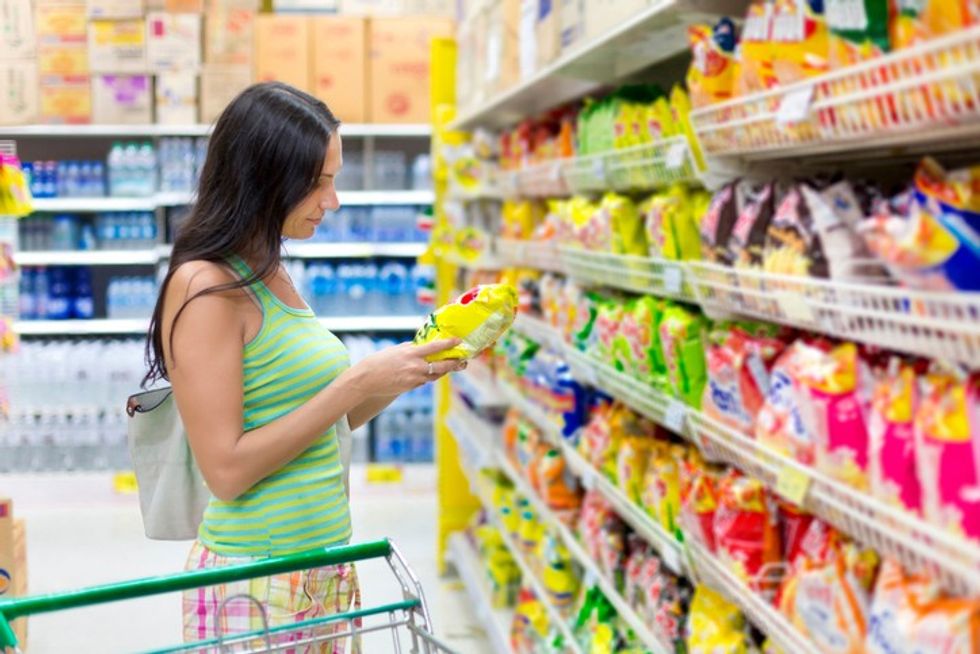
The Welsh consultation over the restriction on HFSS products ended in September, and measures are expected to take effect next year.
The restrictions introduce the following measures:
- For retailers with more than 50 employees: Restrictions on the promotions of multibuys (for example 3 for 2) and additional volume (for example 50% extra free) of HFSS products
- For retailers with more than 50 employees and relevant floor space over 2000 sq ft: Restrictions on the placement of HFSS products at the end of aisles, within 2m of checkouts and queueing areas, and near the entrance of a store (dependent on store size)
While the timeframe for the introduction of the HFSS promotion and placement regulations is not yet confirmed, the Welsh government has committed to publishing guidance 12 months before the introduction of the rules.
In response to the consultation, ACS has welcomed the consistency of the regulations with those already in place in England. The trade body has also highlighted the need for clear guidance from the government on the rules, published with enough lead-time for retailers and suppliers to adapt.
“We welcome the Welsh government’s intention to introduce HFSS rules that are consistent with those already in place in England, ensuring that there are minimal issues for retailers and suppliers that operate in both nations,” said ACS Chief Executive James Lowman.
“However, the experience from England shows that official guidance available from the government was insufficient in avoiding confusion when retailers were developing their revised store layouts, so it’s crucial that the Welsh government gives as much clarity as possible in guidance for businesses ahead of the introduction of the regulations.”
License to sell
Similar to the premises licence required for alcohol sale, retailers might soon need a licence to sell tobacco, vape and nicotine products in England, Wales and Northern Ireland, as part of the Tobacco and Vapes Bill that has passed its second reading in late November.
The Bill intends to create a “smoke-free generation” by phasing out the sale of tobacco products to anyone currently aged 15 or younger. The generational ban will come into force in 2027, meaning that there will be a single date that retailers have to reference for age restricted sales on tobacco – rather than checking if a customer is over the age of 18.
Besides the licensing scheme, the Bill will also introduce on the spot fines of £200 to retailers found to be selling tobacco, vape and nicotine products to underage people. Other measures in the Bill include a ban on vape advertising and sponsorship, in addition to powers to restrict the flavours, display and packaging of all types of vapes, as well as other nicotine products.
In communications ahead of the second reading, the government announced that it would be dedicating an additional £10m to enforcement activity against the illicit trade. However, ACS has previously noted that Trading Standards will need an additional £140 million in the next five years to deal with the huge illicit market that currently costs the Treasury around £2 billion a year in lost revenue.
Lowman has warned that, unless properly structured, a licensing scheme could “prevent legitimate traders from operating based on the presence of other outlets in the area, or the specifics of where that store is located.”
“This requires detailed consultation with local shops and other stakeholders, and none of this has taken place,” he noted. “We now need proper discussion of the detail as regulations are drafted, or we fear that this legislation will significantly impact investment, growth and service provision in our sector.”
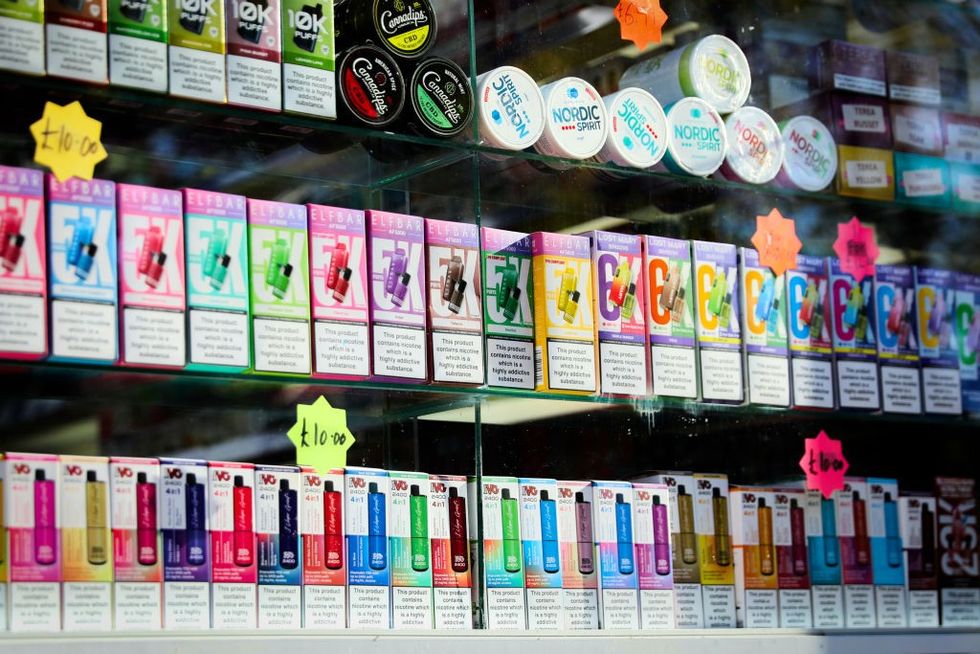
The Bill followed confirmation in October that the government is planning to go ahead with a ban on disposable vaping products, which will come into force on 1 June 2025 across the UK, after the Scottish and Welsh governments have delayed their ban by two months to align with England and Northern Ireland.
ACS has recently launched an extended version of its “Selling Vapes Responsibly” guide to support retailers with the transition away from disposable vapes ahead of the ban.
The new guidance (https://tinyurl.com/acsvape) outlines the features that vapes need to have to be legal for sale from 1 June, as well as what to do with any disposable vapes that are unsold when the ban comes into force. Vapes that are legal to sell from 1 June must be chargeable and refillable, as opposed to disposable vapes which are intended for a single use and are limited to 2ml of vape liquid. Anyone selling disposable vapes from 1 June could be subject to a £200 fixed monetary penalty, followed by further enforcement action if illicit activity continues.
Since the start of 2024, retailers who sell vapes have also been required to provide a takeback service for customers on a minimum of a “one for one” basis (a customer can return a vape when they purchase a new one).
Healthy sales
Celebrating its 20th anniversary this year, the Scottish Grocers’ Federation (SGF) Healthy Living Programme (HLP) showcases how responsible retailing can positively influence public health, create economic opportunities, and build stronger connections between stores and the communities they serve.
Fully funded by the Scottish Government since its inception in 2004, the programme works with over 2,300 convenience retailers across Scotland, to help advise on growing sales of healthier products in stores.
Central to HLP’s success has been its focus on community engagement, exemplified by the Welby Breakfast initiative, which has reached more than 37,000 primary school pupils. Teaming up with both retailers and local primary schools, the programme delivers a vital message about the importance of starting the day with a nutritious meal.
“This anniversary is a major milestone for HLP and the whole team and is well worth celebrating. Over twenty years SGF and HLP have created a programme that works for every store, and the branding is now a key fixture in many new or refitted shops,” programme director Kathryn Neil said.
“Community engagement has been the key to success, ensuring the programme remains relevant and maintains relationships with key fascia groups. Helping to deliver the “responsible retailing” message.”
Research commissioned by the programme shows that 40 per cent of consumers recognise the HLP branding in stores, underscoring its impact on shopper behaviour. The programme also drives economic benefits by creating new markets for healthy products, benefiting both retailers and local producers.
SGF chief executive Pete Cheema praised the programme’s achievements, noting, “Not only does HLP help direct consumers to purchase healthier options, improving the health of communities, it also creates an avenue for new markets in healthy products, supporting the local economy.”
While England and Wales have attempted to replicate the programme’s success, the HLP remains uniquely impactful in Scotland. Its adaptability and close collaboration with retailers and government are seen as key factors behind its longevity and effectiveness.
And, coming back to bananas, HLP’s recent Free Banana Wednesday campaign with Snappy Shopper was a huge success, with a 61 per cent increase in banana purchases and a 16.5 per cent rise in overall fruit sales.
With over 200 stores participating, the campaign offered customers a free banana every Wednesday in August by simply entering the code FREEBAN on the Snappy Shopper app.
Customers embraced the free fruit, leading to a 61 per cent increase in bananas added to Snappy Shopper baskets. The campaign also saw a remarkable 16.5 per cent year-on-year increase in overall fruit purchases on Wednesdays during the promotion. This translates to a 15 per cent rise in the value of fruit sales compared to the same period last year.
Such successes align with the findings of the “sad bananas” study, which revealed that small interventions in convenience retail can significantly influence consumer behaviour, steering customers toward healthier choices.
Sad bananas, empathetic shoppers
Don’t stay single!Did you know that communicating an emotional appeal reduces food waste?
- New Research: Study by University of Bath’s School of Management, conducted in the German supermarket chain REWE, finds emotional appeal boosts sales of “single” unsold bananas.
- Sad Bananas Work Best: Signs with a sad banana face and the message “We are sad singles and want to be bought as well” increased sales by 58 per cent.
- Key Findings:
- Sad signage outperformed happy signage (5.4% sales increase) and emotionless messages.
- Hourly sales rose from 2.02 bananas (emotionless signs) to 3.19 bananas (sad signs).
- Psychological Insight: “The need to belong is one of the most basic human motivations, and applying sadness to single, stray bananas evokes a compassionate response from shoppers,” says Dr Lisa Eckmann from the Bath Retail Lab at the University of Bath.
- Retail Impact: “The findings have very practical applications for boosting sales and reducing food waste from our supermarkets,” Dr Eckmann adds.
- Food Waste Problem:
- Single bananas, often discarded by shoppers, are a major source of food waste.
- Food waste in retail accounts for 131 million tonnes annually (UNEP 2024).
- Single bananas have significant climate impact and are often explicitly listed as avoidable waste.
- Price vs. Emotion: The impact of the sad bananas did not outweigh a drop in price – discounting the produce was more effective at driving people to choose single bananas.
Practical Tip: Retailers could start with emotional messaging and later introduce discounts to sustain sales and reduce waste.






